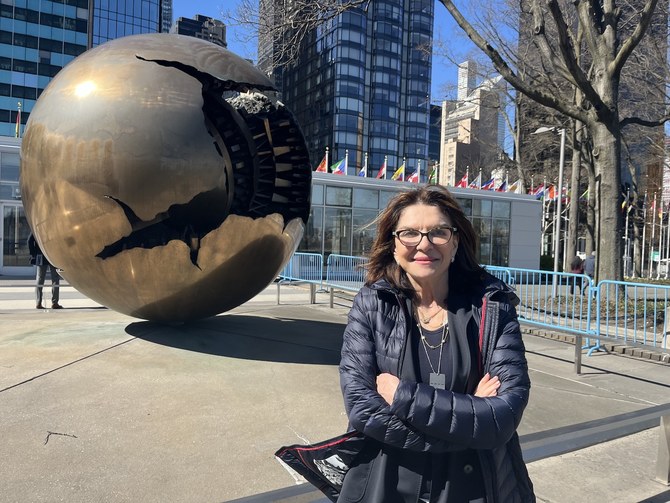
Declarations of victory are everywhere, and on the lips of everyone concerned with the war on terror in Syria. In my opinion, this is a temporary victory, and it is only a matter of time until another Daesh organization emerges.
Daesh, the so-called state whose defeat was announced in Syria last week, was born in 2011 after the declaration of the end of the Al-Qaeda terrorist organization. It was announced that Al-Qaeda had been completely destroyed following its defeat in Baghdad and western Iraq.
The number of those said to be members of Daesh who have been arrested in Syria has reached about 30,000. The number of those who joined the terrorist group during the Syrian war is thought to be more than 60,000, according to an estimate based on the number of detainees who left different parts of Syria after the launch of the international coalition’s attacks against them last summer.
Like Al-Qaeda, Daesh is an idea, and ideas do not die easily in our region’s current environment, which is one of chaos and emptiness. Al-Qaeda first appeared in Afghanistan after the Taliban took over and following the withdrawal of US troops in the early 1990s. From there, the idea of cross-border armed extremism spread to the countries of the region through the media, mosques and other incubators.
Al-Qaeda strongly came into the picture in Iraq after the collapse of Saddam Hussein’s regime and the establishment of a weak temporary government in Baghdad under US administration. It was finally defeated in Iraq after thousands were killed in Anbar province, but it resurged under a new name and flag.
In 2011, the peaceful and civil revolution started in Syria, and Abu Bakr Al-Baghdadi, who had established a “caliphate” and named it the Islamic State of Iraq, seized the opportunity to expand his so-called state across the border into Syria. He started to establish Daesh’s presence in Syria and chose Abu Mohammad Al-Julani for the task. But Al-Julani soon disagreed with his leader and instead founded the Al-Qaeda-linked Al-Nusra Front.
Extremism has no religion and leads to terrorism. We have seen this in the way the racist right has turned to murder, such as in the recent crime that took place in two mosques in New Zealand. Extremism is one creed that nurtures itself.
Abdulrahman Al-Rashed
Al-Julani decided in 2016 to change the name of his organization to Jabhat Fateh Al-Sham (JFS). He said the aim was to “repel the pretexts of the international community, led by the US and Russia, which are bombing and displacing common Muslims in Syria under the pretext of targeting Al-Nusra Front.” The truth is that it was part of the game of forming alliances with Turkey and a number of other Syrian factions.
Other terrorist movements emerged, including the Nour Al-Din Al-Zenki Movement, Liwa Al-Haqq, Jaysh Al-Sunna and the Ansar Al-Din Front. Even JFS changed its name again to Hayat Tahrir Al-Sham.
Syria was not the only territory to be invaded by Al-Qaeda, as the organization’s branches are present in many areas. Al-Qaeda has a presence in the Arabian Peninsula, the Indian subcontinent and the Islamic Maghreb, in addition to the Al-Shabab organization and sleeper cells in Iraq and elsewhere.
Therefore, declaring victory and the destruction of Daesh’s terrorist caliphate is an event confined to its place and time. Terrorism will remain as an idea produced by extremism. This means that fighting extremism is more important than fighting terrorism, which is limited to the context of carrying arms.
Organizations such as the Muslim Brotherhood remain a large school for producing dangerous ideas, even though among their followers and branches there are peaceful groups that are different from Al-Qaeda.
Extremism has no religion and leads to terrorism. We have seen this in the way the racist right has turned to murder, such as in the recent crime that took place in two mosques in New Zealand. Extremism is one creed that nurtures itself.
• Abdulrahman Al-Rashed is a veteran columnist. He is the former general manager of Al Arabiya news channel, and former editor-in-chief of Asharq Al-Awsat.
Twitter: @aalrashed
Disclaimer: Views expressed by writers in this section are their own and do not necessarily reflect Arab News" point-of-view










